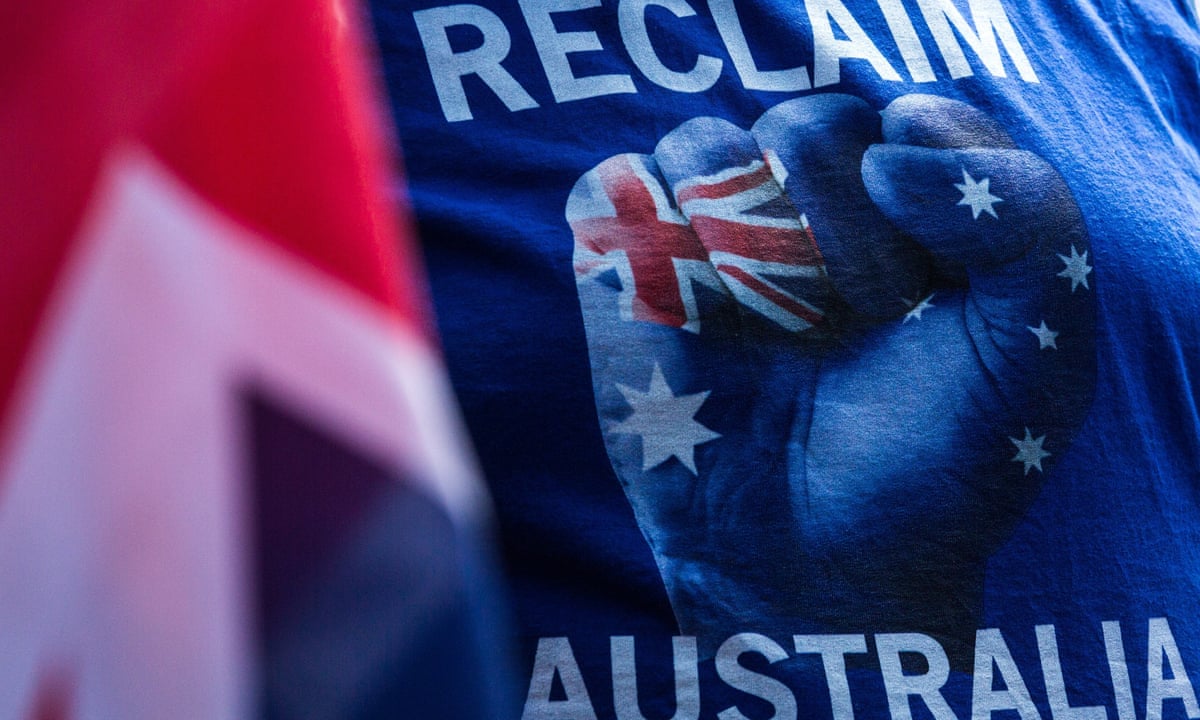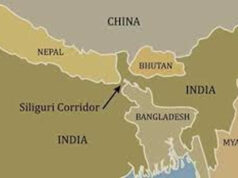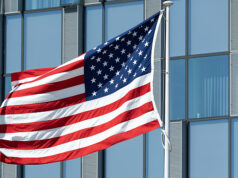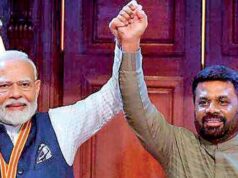How Australia’s anti-terror regime has failed to rein in far-right extremists

By
Michael McGowan
Dated : 16 Jan 2021 (IST)
Despite growing alarm from intelligence agencies, no far-right group has been designated as a terrorist organisation in Australia
When a group of Donald Trump-supporting insurrectionists launched an attack on the US Capitol building last week, Australian white supremacist Tom Sewell saw it as a teachable moment for his followers.
“Just watched a video of Patriots smashing up commies and you can hear a singular voice in the Patriot crowd of a man shouting; ‘Stop, stop that, stop!’,” Sewell wrote following the march.
“King hit these faggots. Knock them out, drag them away. Keep doing this over and over, until all the shills shut the fuck up while the Men smash the enemy.”
Sewell has long been a prominent figure in the ecosystem of Australia’s extreme right. A one-time competitive weightlifter and member of the Australian army, he was one of the leaders of the now-defunct United Patriots Front.
Since that group disbanded in 2017, many of its most prominent members have faded from relevance. Blair Cottrell, the UPF’s former leader and perhaps Australia’s best-known white supremacist – thanks in part to appearances on the ABC and Sky News – now spends much of his time on the few social media channels from which he has not been banned, posting gym selfies and spouting fringe conspiracy theories.
Sewell, though, has remained active. After the UPF folded he founded another far-right group called the Lads Society, which aimed to attract members of mainstream society under the guise of a men’s fitness club while keeping its explicitly white supremacist agenda hidden.
‘

A threat to Australia’: experts welcome inquiry’s focus on rise of rightwing extremism
At its peak, Sewell claimed the group had more than 350 active members. But the 2019 Christchurch massacre brought a wave of attention on to the group’s activities. Although Sewell had previously told the Sydney Morning Herald he had once approached the Australian shooter to join the Lads Society but was turned down, the royal commission into the massacre detailed a number of links between the shooter and the group.
According to the report, in early February 2018 the shooter was “engaged in online discussion with members of the Lads Society”, including making veiled threats about an Islamic school near where he lived in New Zealand.
“Having identified the apparent problem of Muslim immigration rates, but offering no democratic solution, we consider the post by the individual was an implied call to violence and, in this way, another illustration of his ethno-nationalist beliefs,” the commission’s report stated.
The unwanted attention of law enforcement agencies in the wake of the shooting apparently led to divisions within the Lads Society, and it was eventually shuttered.
“Splits and desertion began occurring as police began a process of harassment of our organisation,” Sewell wrote in a post late last year.
“I decided that the Lads Society model had some great ideas to it, but it was not strong enough or explicit enough, it tried to create a ‘broad tent’ approach instead of forming a strong political cadre of men who would create the stem cell of our future leadership of White Australians.”

Far-right activist Tom Sewell.
Instead, he founded the National Socialist Network, a white supremacist neo-Nazi group with members in most major cities in Australia. Unlike the Lads Society, the NSN is more explicitly extremist in its ideology. Its website states it is “loyal to National Socialism and nothing else”, and that it seeks “a revolution”.
“We need to accept the revolutionary nature and methods of National Socialism and drop the rightwing, conservative and reactionary nonsense,” its website says.
“A revolution requires revolutionaries. We need men who are willing to do whatever is necessary regardless of the consequences.”

On 7 January, the day after the storming of the US Capitol, a post on an NSN social media account hailed the “brave white men in Washington DC” who, the group wrote, “have lit a flame that will never go out”.
“The enemy’s spell has been broken forever … those Jews and traitor politicians who had crowed so loudly about confronting White supremacy and racism ran and hid in the basement like the rats they are!” the group wrote.
The post was accompanied by a photo of a sticker stating “white revolution is the only solution”. The sticker had been placed at Commonwealth Place in Canberra, only a short walk away from Australia’s federal parliament.
Allowed to flourish
In recent years intelligence agencies have increasingly sounded the alarm about the threat of far-right extremism, and dozens of neo-Nazi organisations and so-called patriot groups remain active in Australia.
In September last year the Australian Security Intelligence Organisation’s deputy director general of intelligence service delivery, Heather Cook, told a parliamentary inquiry that far-right violent extremism constitutes up to 40% of the domestic spy agency’s counter-terrorism caseload, up from 10-15% before 2016.
Yet almost two decades after the Howard government introduced laws making it illegal to be a member of a proscribed terrorist organisation in the wake of the 11 September terror attacks in the US, no far-right group has ever been given that designation.
We have a history in this country of not dealing with rightwing-motivated violence in a serious manner
Anne Aly
But in the wake of the New Zealand royal commission report in December, the federal parliament’s powerful intelligence and security committee launched a new inquiry into “the nature and extent of, and threat posed by, extremist movements”, including the far right.
The inquiry’s terms of reference include “changes that could be made to the commonwealth’s terrorist organisation listing laws to ensure they are fit for purpose”, including whether they address “current and emerging terrorist threats, reflect international best practice, and provide a barrier to those who may seek to promote an extremist ideology in Australia”.
The government and security agencies have previously argued that they are limited by the scope of the legislation, which allows the home affairs minister to make a designation if they are reasonably satisfied a group is “directly or indirectly engaged in preparing, planning, assisting or fostering the doing of a terrorist act” or “advocates the doing of a terrorist act”.
But Labor MP Anne Aly, a counter-terrorism expert and member of the intelligence and security committee, told the Guardian the failure to use so-called proscription laws to classify far-right groups as terror organisations had allowed them to “flourish” in Australia.
“We have a history in this country of not dealing with rightwing-motivated violence in a serious manner,” she said.
“We haven’t dealt with this threat in the past in the way we would have if they were, quite frankly, Islamic-based ideological groups. It has had the side-effect of allowing rightwing extremist groups to continue to grow, organise and flourish.”
Aly doesn’t agree that the current legislation hinders the listing of far-right groups, and points to cases where Australia has followed overseas allies in making designations for Islamic organisations but not those on the far right.
For example, while the neo-Nazi group Combat-18 is proscribed in both Germany and Canada, it does not have a similar listing in Australia despite the group being linked to a 2010 shooting at a Perth mosque.

Christchurch shooter was active with Australian far-right groups online but escaped police attention
The men did not face terror charges, but were instead prosecuted for causing criminal damage, discharging a firearm across a road and possessing an unlicensed firearm.
By contrast, when the Palestinian Islamic Jihad group was listed as a terrorist organisation in 2004, the government acknowledged there were “no known direct links” between the group and Australia but noted the group had been proscribed by the USA, the UK, Canada and the EU.
Other experts agree. Nicola McGarrity, an honorary senior lecturer in the faculty of law at the University of New South Wales who specialises in terrorism laws, said there was “nothing in the current proscription framework which means it couldn’t be applied to rightwing groups”.
“My view is the definition of a terrorist organisation and the act on which it hinges is exceptionally vague and broad,” she said.
“The same way it has been applied to deal with Islamic extremist groups could easily be applied to rightwing groups. All an organisation needs to be doing is to be advocating terrorism, which includes praising terrorism.”
McGarrity is not uncritical of proscription laws and said it was questionable whether their use against Islamic groups had been effective. But, she said, there was a “symbolic” issue.
“What I would say is that I think there is a problem, even if it’s simply a symbolic one, that no rightwing organisations have ever been listed,” she said.
“It sends a particularly poor message to Islamic groups that they are being disproportionately targeted, and to rightwing groups that they aren’t on anyone’s radar.”
‘Violence solves everything’
While the Guardian does not suggest either Sewell or the NSN have engaged or intend to engage in any terror-related activities, what perhaps sets them apart from other far-right groups is their awareness of the legislation governing terror proscription, and how the increased attention being focused on the far right could eventually interrupt their activities.
After the parliamentary inquiry was announced late last year, the NSN called it a “blatant attempt to silence” groups like it and wrote that if the “government believes that we can be intimidated into silence, then it is sorely mistaken”.
“National Socialist Network is a non-violent activist organisation and has nothing to do with terrorism, whether it be counselling, promoting, encouraging, urging or engaging in terrorism. Any claim to the contrary is simply a lie,” the group wrote on its social media channel.
Jacob Hersant, a former member of another Australian neo-Nazi group called the Antipodean Resistance and now a spokesman for the NSN, told the Guardian the group had not been warned by officials about the possibility of proscription “or other official actions that it might take against us”.
But he accused the government of “abusing our counter-terrorism laws for political purposes by conflating so-called ‘extremist’ political opinions with terrorism”.
“If the government criminalises something as nebulous as political ‘extremism’ then we would most definitely be in danger of being banned,” he said.

Terror time bomb: the race to defuse Australia’s far-right threat
Hersant said he didn’t believe the organisation could be proscribed “because we are not involved in advocating, preparing, planning, assisting or fostering the doing of a terrorist act”.
“The evidence on which the government could base such a ruling simply does not exist,” he said.
But while Sewell has also been careful to caveat his language, in the past he has strayed into language which suggests at least an ambivalence about the use of violence. In a series of videos and posts published following the release of the New Zealand royal commission report, Sewell praised US shooter Kyle Rittenhouse as a “hero”, and encouraged his followers to “destroy multiculturalism”, “faggotry” and the “Jewish empire of evil”.
In one video, he told his followers he believed that “violence solves everything” before adding that he was “talking philosophically”.
“You cannot talk these things out,” Sewell said.
“You cannot talk out your racial replacement. Or as [far-right activist Stefan] Molyneux says, there are no more arguments … There are no arguments with these people. You separate from them, you make, you know, big fences away from them, and if they continue to trespass against you, well you’re left with no other option.”




